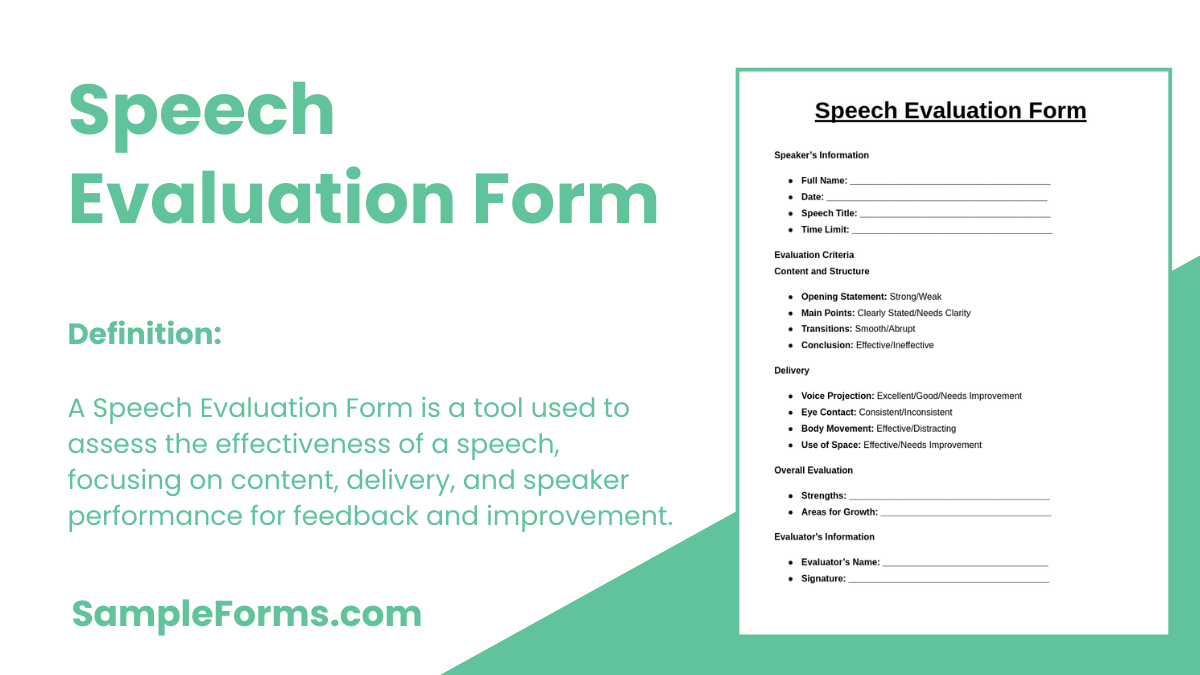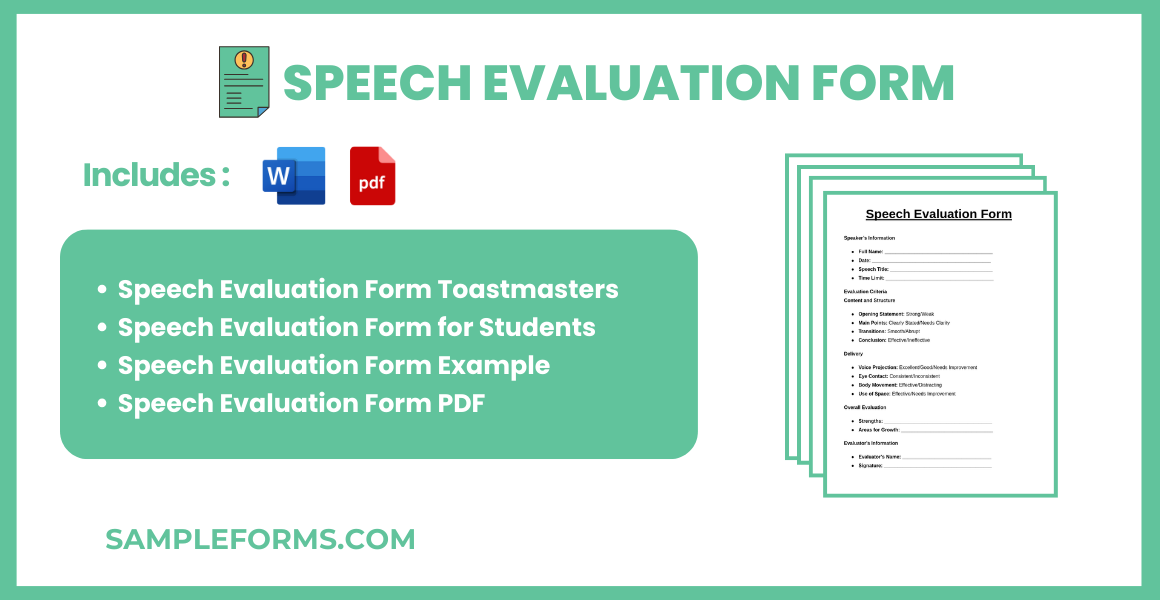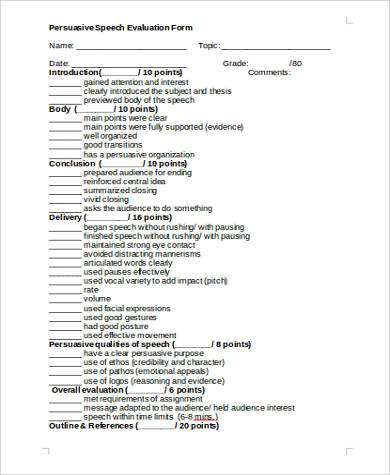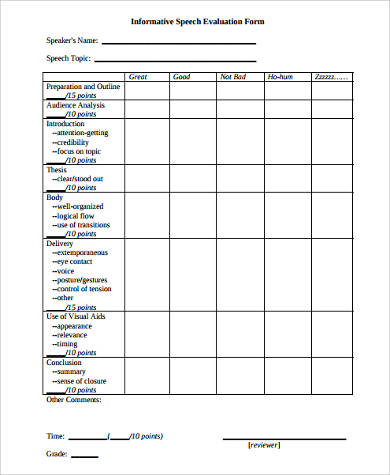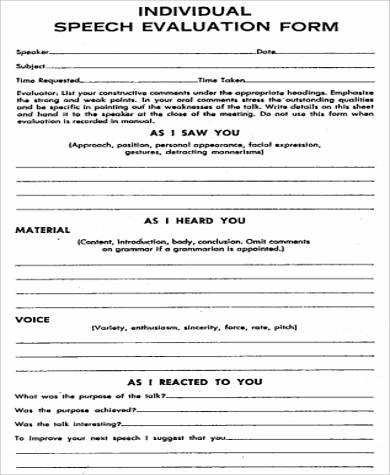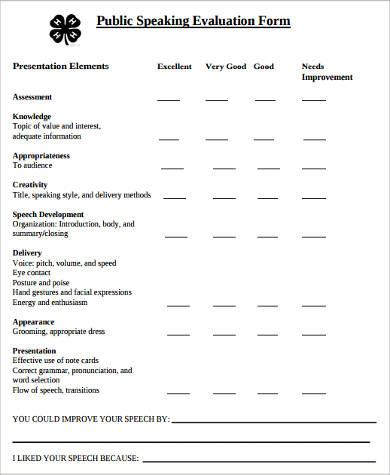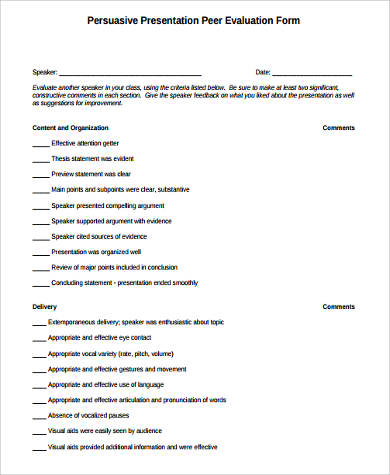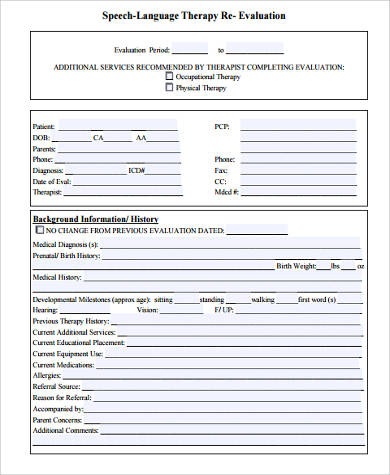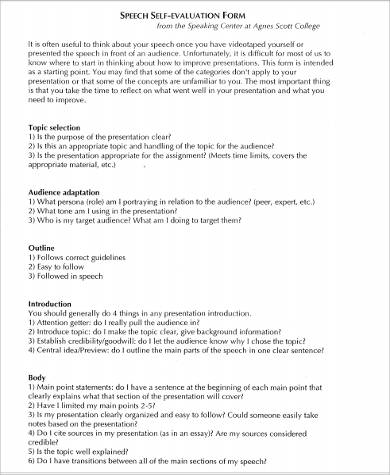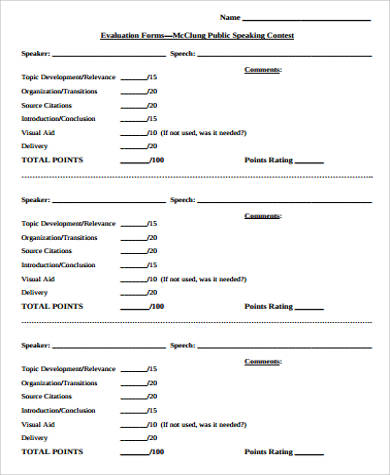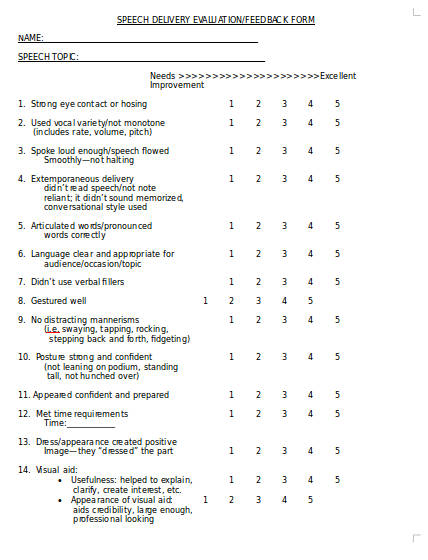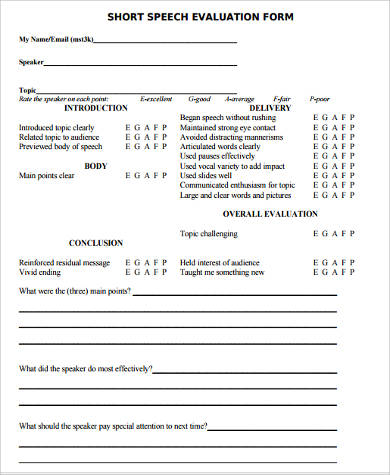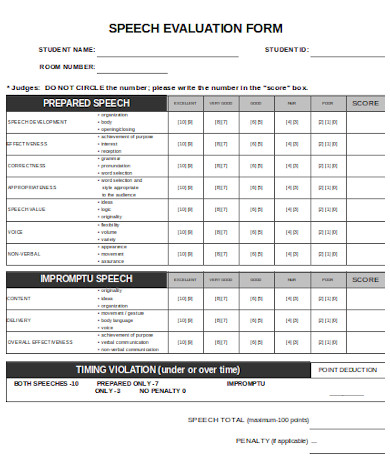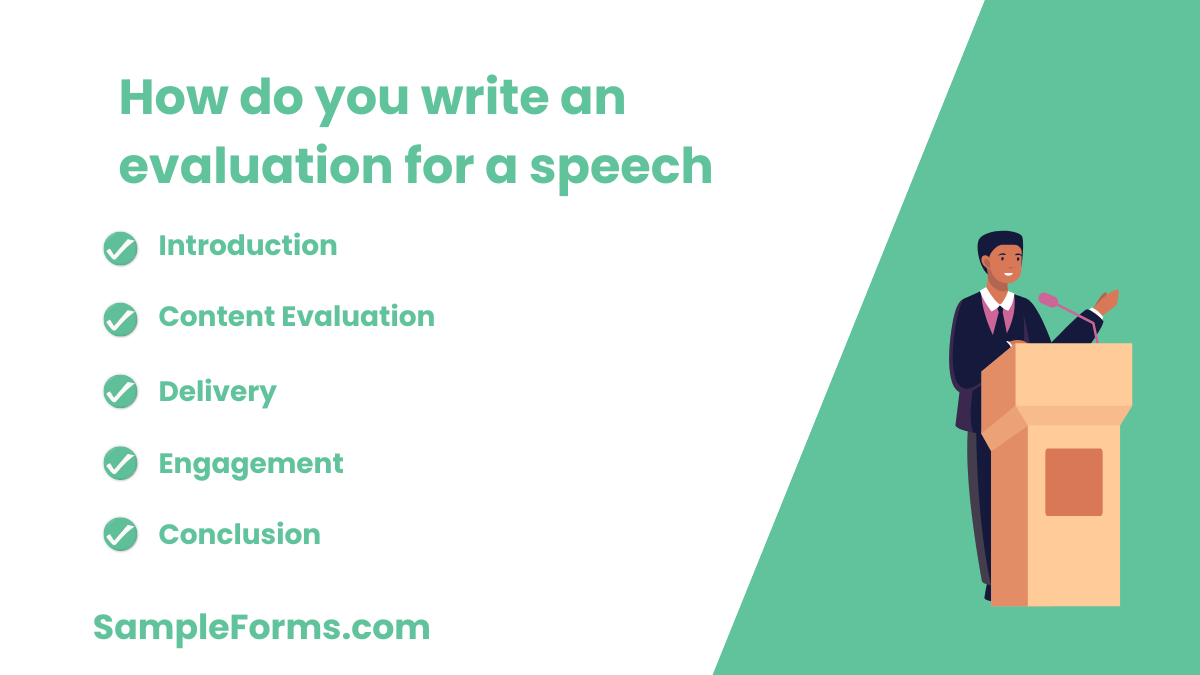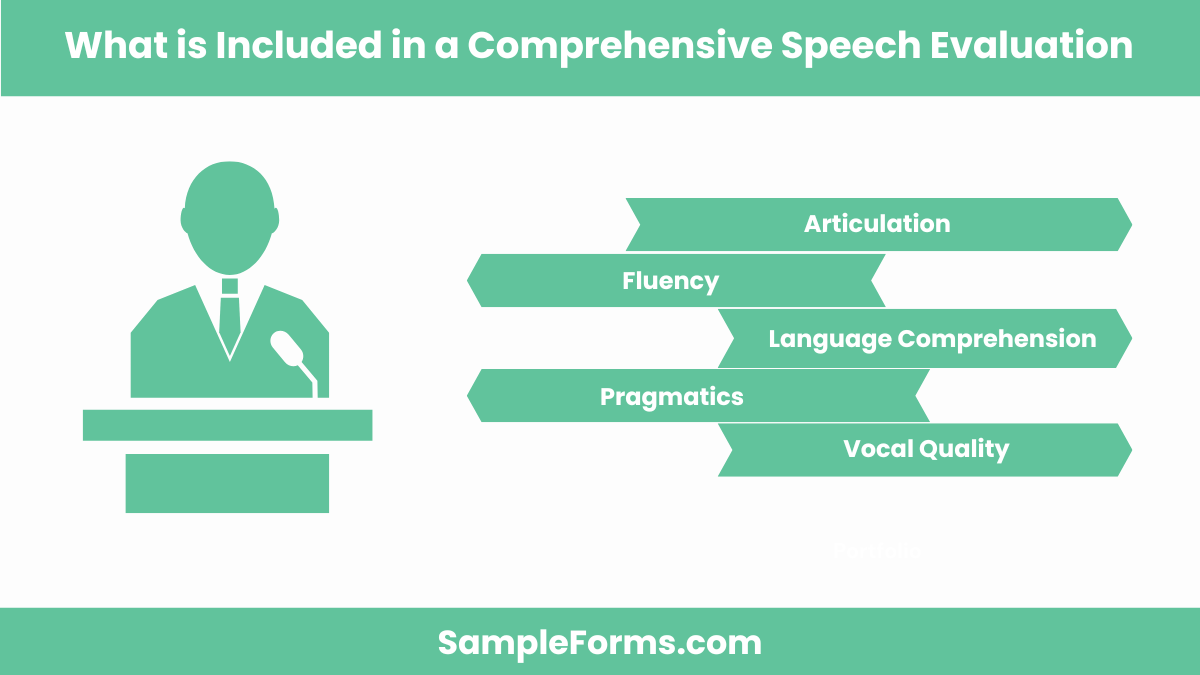A Speech Evaluation Form is an essential tool for assessing the quality and effectiveness of a speaker’s presentation. This guide covers everything you need to know about creating and using an Evaluation Form effectively. Whether you’re evaluating content, delivery, or body language, a structured form helps ensure feedback is clear and actionable. You’ll also find tips on how to incorporate elements from a Presentation Evaluation Form to assess communication effectiveness in professional settings. With step-by-step examples, this guide helps both evaluators and speakers improve performance and communication skills.
What is Speech Evaluation Form?
A Speech Evaluation Form is used to assess the effectiveness of a speaker’s presentation. It provides structured feedback on key elements like content, delivery, organization, and body language. The goal is to offer constructive criticism that helps the speaker improve. It is often used in public speaking competitions, corporate training, and educational settings. Much like a Call Monitoring Evaluation Form, it focuses on communication clarity, engagement, and overall performance to ensure effective speaking and presentation skills.
Speech Evaluation Form Format
1. Speaker Information
- Include the speaker’s name, date, speech title, and time limit.
2. Evaluation Criteria
- Content: Assess the organization, structure, and effectiveness of the speech.
- Delivery: Evaluate voice, eye contact, gestures, and overall confidence.
- Engagement: Review the speaker’s interaction with the audience and clarity of the message.
3. Strengths
- Highlight specific areas where the speaker excelled.
4. Areas for Improvement
- Provide constructive feedback on areas that need improvement.
5. Evaluator’s Information
- Add the evaluator’s name, signature, and date for form completion.
Speech Evaluation Form Toastmasters
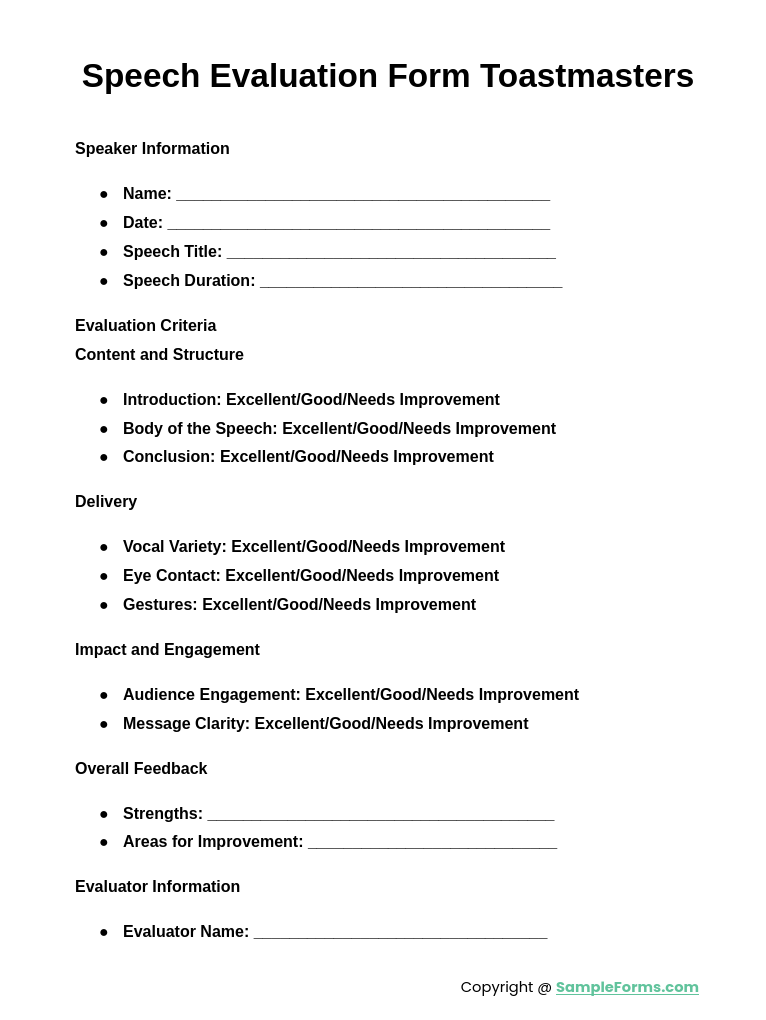
A Speech Evaluation Form Toastmasters helps evaluate a speaker’s performance based on Toastmasters criteria. It focuses on structure, delivery, and body language, similar to a Self Evaluation Form that encourages personal reflection for continuous improvement.
Speech Evaluation Form for Students
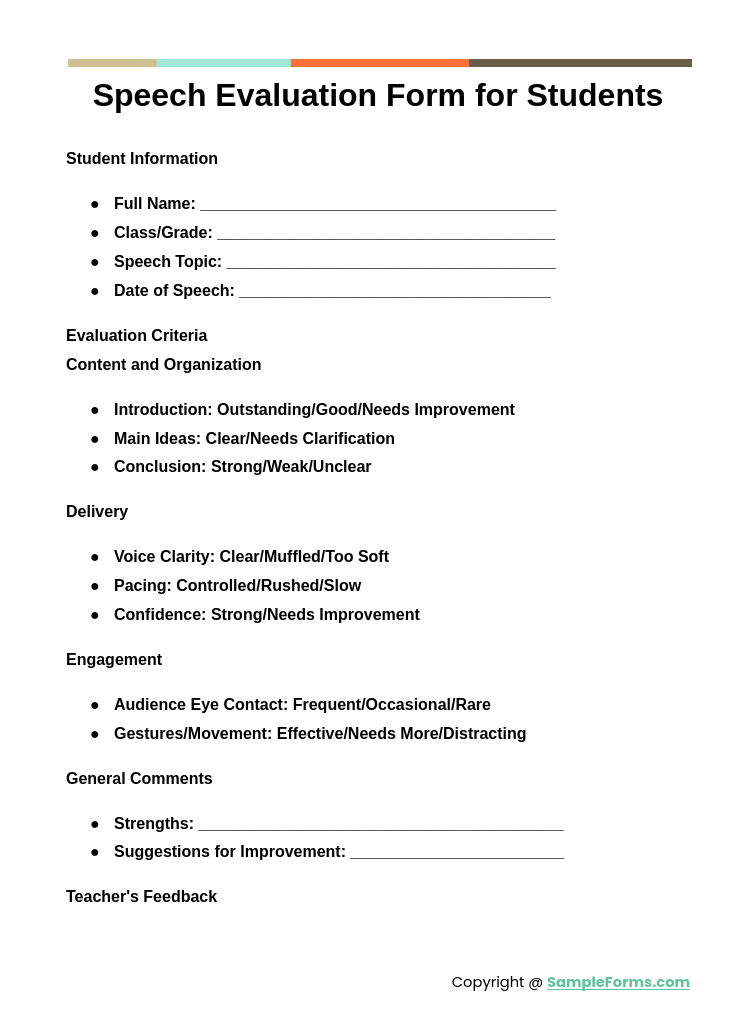
A Speech Evaluation Form for Students assesses a student’s public speaking abilities, covering clarity, confidence, and audience engagement, much like a Training Evaluation Form used to gauge learning and skill development in training sessions.
Speech Evaluation Form Example
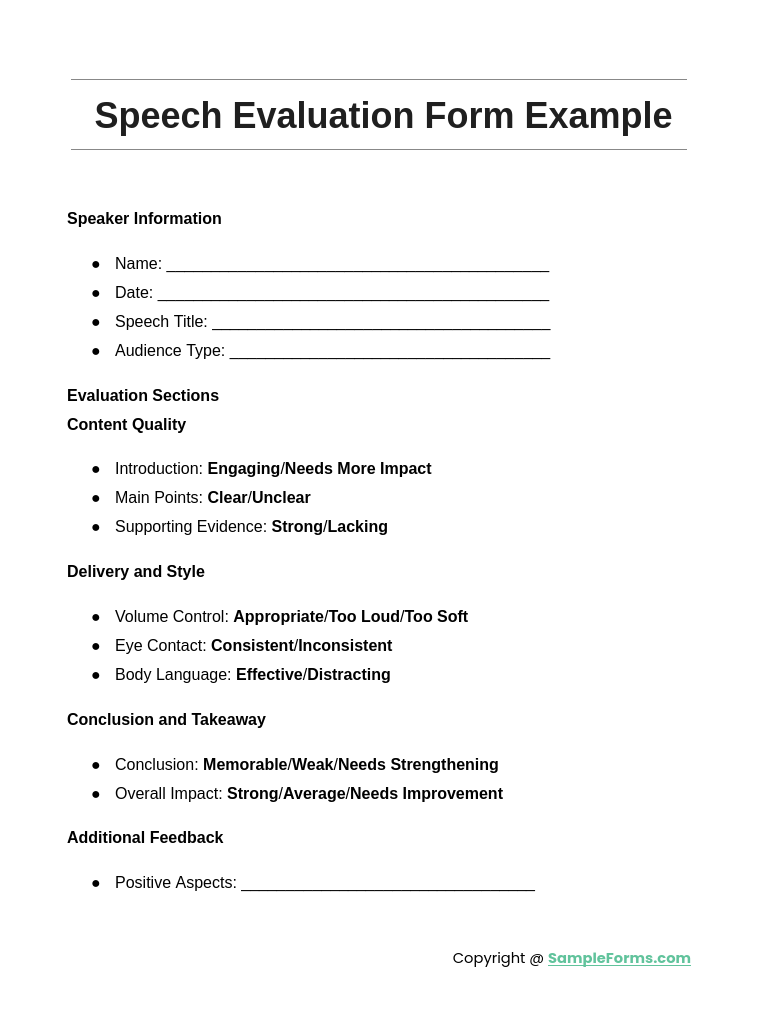
A Speech Evaluation Form Example provides a structured format for evaluating key aspects of a speech, from content to delivery, similar to how an Employee Self Evaluation Form helps assess job performance through guided criteria.
Speech Evaluation Form PDF
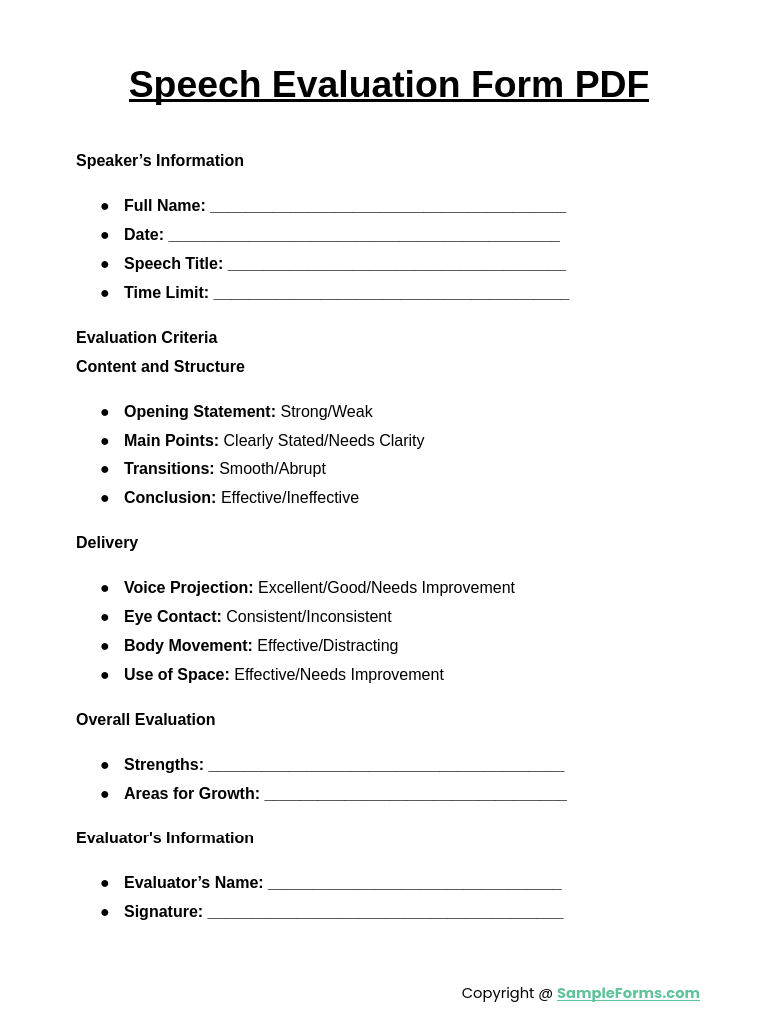
A Speech Evaluation Form PDF offers a downloadable, ready-to-use format for evaluating speeches. It provides a structured approach, similar to a Peer Evaluation Form, encouraging constructive feedback and peer improvement in speaking skills.
Browse More Speech Evaluation Form
Persuasive Speech Evaluation Form
Informative Speech Evaluation Form
Individual Speech Evaluation Form
Public Speaking Evaluation Form
Peer Speech Evaluation Form
Speech Therapy Re-Evaluation Form
Speech Self-Evaluation Form
Speech Contest Evaluation Form
Speech Delivery Evaluation Form
Short Speech Evaluation Form Example
Simple Speech Evaluation Form
How do you write an evaluation for a speech?
Writing a speech evaluation involves providing constructive feedback on the speaker’s performance, much like filling out a Nurse Evaluation Form.
- Introduction: Begin by acknowledging the speaker’s strengths.
- Content Evaluation: Assess how well the speech content was structured and relevant.
- Delivery: Comment on the speaker’s clarity, tone, and body language.
- Engagement: Evaluate audience interaction and engagement.
- Conclusion: Offer suggestions for improvement with positive reinforcement. You should also take a look at our Workshop Evaluation Form
What is included in a speech evaluation?
A speech evaluation includes feedback on content, delivery, and audience engagement, similar to how a Debate Evaluation Form assesses argumentation.
- Structure: Evaluate the organization and flow of the speech.
- Delivery: Assess vocal clarity, pacing, and tone.
- Body Language: Review gestures, eye contact, and posture.
- Audience Engagement: Observe how the speaker connects with listeners.
- Content Relevance: Judge whether the speech topic meets its purpose. You should also take a look at our Mentor Evaluation Form
Why would my child need a speech evaluation?
A speech evaluation helps identify speech or language development issues, similar to how an Internship Evaluation Form assesses professional growth.
- Speech Delays: Identify any delays in language or speech development.
- Clarity Issues: Assess how well your child is understood by others.
- Language Skills: Evaluate vocabulary, grammar, and sentence structure.
- Social Interaction: Examine communication skills in social settings.
- Therapy Recommendations: Provide guidance on therapy or support. You should also take a look at our
What is the most common way speech evaluations are given?
Speech evaluations are often conducted through one-on-one sessions, like completing a Food Evaluation Form to assess quality.
- Observation: The evaluator observes a speech or interaction.
- Interview: The evaluator asks questions to assess language comprehension.
- Standardized Tests: Use tests to measure speech and language proficiency.
- Audio/Video Analysis: Analyze recorded speeches or conversations.
- Immediate Feedback: Provide real-time comments and suggestions. You should also take a look at our Teacher Evaluation Form
What is included in a comprehensive speech evaluation?
A comprehensive speech evaluation covers speech, language, and communication skills, much like a Functional Capacity Evaluation Form assesses physical capabilities.
- Articulation: Assess how clearly speech sounds are produced.
- Fluency: Evaluate the flow and smoothness of speech.
- Language Comprehension: Test understanding of spoken and written language.
- Pragmatics: Review social communication and interaction skills.
- Vocal Quality: Analyze tone, pitch, and volume of the speaker. You should also take a look at our Food Sensory Evaluation Form
How to do a self evaluation for speech?
A self-evaluation for speech involves reviewing content, delivery, and audience engagement, much like filling out an Instructor Evaluation Form to assess personal performance and identify areas for improvement.
What does a speech evaluation look like?
A speech evaluation provides structured feedback on delivery, content, and audience connection, similar to a Vehicle Evaluation Form with clear categories for analysis and improvement suggestions.
What is the best method for speech evaluation?
The best method for speech evaluation includes structured observation, feedback, and criteria-based scoring, like completing a Textbook Evaluation Form to ensure detailed, balanced analysis.
What do they do during speech evaluation?
During a speech evaluation, evaluators assess clarity, content, and delivery, similar to a Performance Evaluation, offering constructive criticism to help the speaker improve in future presentations.
How do you write a good evaluation?
A good evaluation focuses on strengths, highlights areas for improvement, and provides actionable feedback, similar to completing a Restaurant Evaluation Form for balanced, constructive feedback.
How do you critically evaluate a speech?
To critically evaluate a speech, assess structure, content clarity, and delivery effectiveness, much like filling out a Communication Evaluation Form to analyze how well the message was conveyed.
How to write a review of a speech?
A speech review summarizes key points, critiques delivery, and offers feedback for improvement, similar to writing an Employer Evaluation Form to give performance insights on the speaker’s presentation.
What are the 3 C’s in speech?
The 3 C’s in speech are Clarity, Confidence, and Connection, which are essential for impactful delivery, much like the qualities assessed in an Interview Evaluation Form.
When to ask for a speech evaluation?
Ask for a speech evaluation after practicing or delivering a presentation to receive valuable feedback, much like requesting a Technical Evaluation Form to improve technical skills.
How long should evaluation speech be?
An evaluation speech should be concise, typically 2-3 minutes, similar to a Business Evaluation Form that provides quick yet comprehensive feedback for improvement without overcomplicating the process.
In conclusion, a Speech Evaluation Form is a vital tool for providing structured feedback to speakers. This article has covered various forms, examples, and tips to help create meaningful evaluations. Whether you need a Sports Evaluation Form for athlete assessment or a speech form for public speaking, these templates ensure accuracy and clarity in evaluations. Effective feedback is key to helping speakers improve their performance, and with these samples, you’ll have everything you need to make your evaluations impactful.
Related Posts
-
FREE 6+ Business Credit Checklist Forms in PDF
-
Employee Pay Increase Form
-
Chef Evaluation Form
-
FREE 8+ Kitchen Evaluation Forms in PDF | MS Word
-
Customer Service Evaluation Form
-
FREE 15+ Grant Evaluation Forms in PDF | MS Word
-
FREE 14+ Volunteer Evaluation Forms in PDF
-
Mentee Evaluation Form
-
Speaker Evaluation Form
-
FREE 14+ Vehicle Evaluation Forms in PDF
-
FREE 14+ Trainee Evaluation Forms in MS Word | PDF
-
Resume Evaluation Form
-
FREE 14+ Retreat Evaluation Forms in PDF
-
Debate Evaluation Form
-
FREE 14+ Book Evaluation Forms in PDF | MS Word
